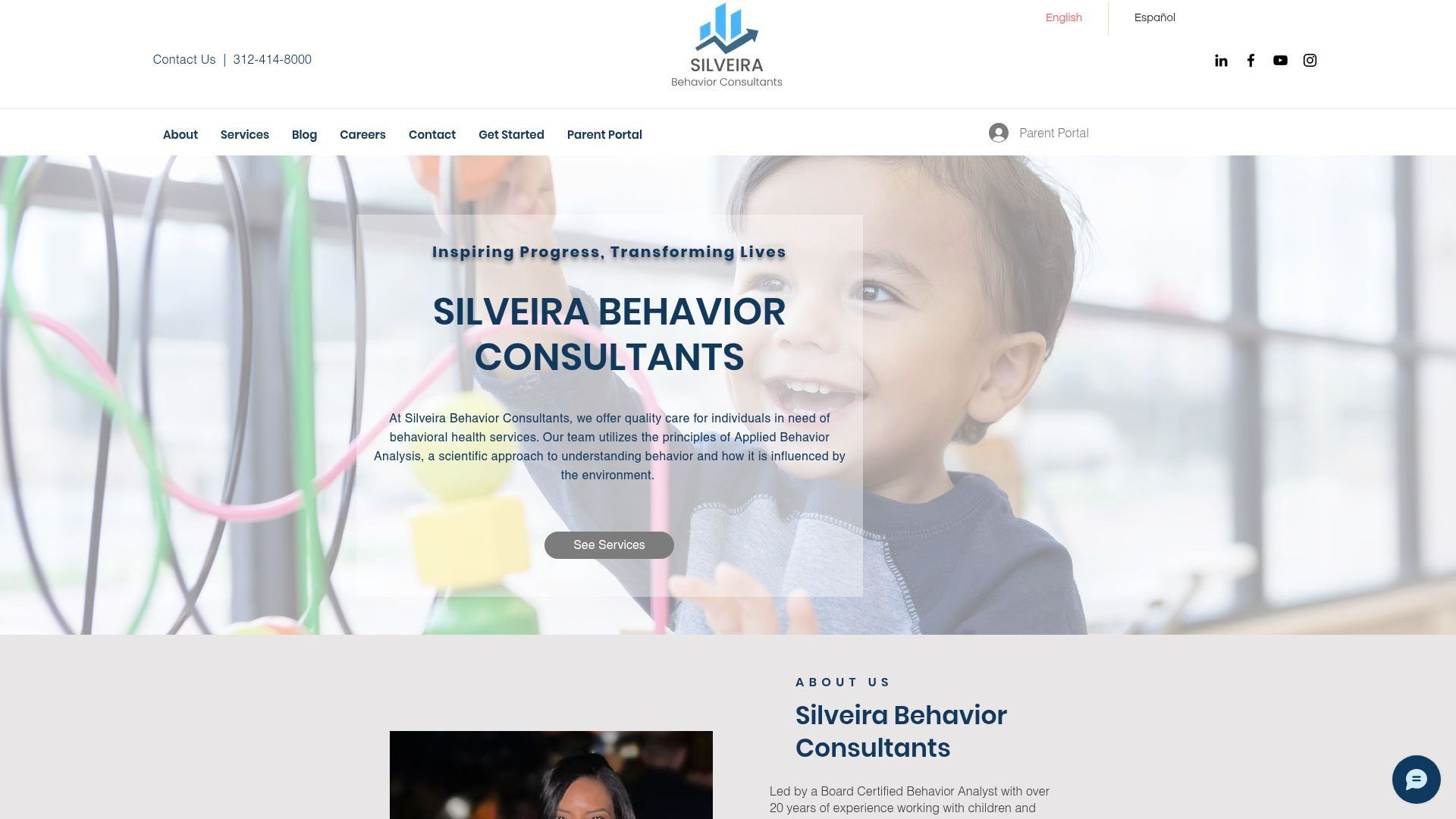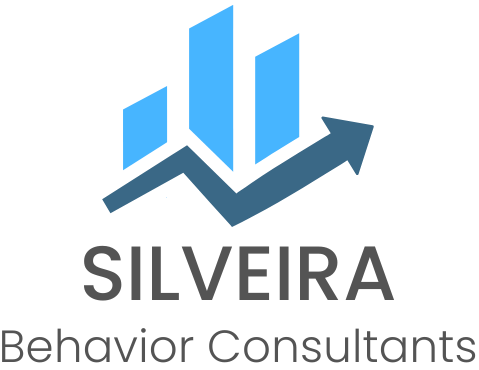The Ultimate Beginner's Guide to ABA Consultants (BCBAs) for 2025
Discover how ABA consultants are transforming the lives of individuals with autism and developmental disabilities, one personalized plan at a time. Today, ABA consultants (Board Certified Behavior Analysts, or BCBAs) have become a cornerstone for families and educators seeking effective, evidence-based support for children and adults with behavioral challenges. As the demand for expert guidance grows in 2025, understanding how to leverage their expertise is more important than ever.
This beginner’s guide breaks down the essential roles of ABA consultants, demystifies their process, and provides practical steps to help you get started in 2025.
Read on to learn what ABA consultants do, how to find the right expert, and what to expect throughout your ABA journey. Let’s empower your path to meaningful change together.
Understanding ABA Consultants: Roles and Responsibilities
Understanding the work of ABA consultants is essential for families, educators, and anyone new to behavioral support. These professionals play a pivotal role in guiding individuals with autism and developmental disabilities toward greater independence and success by applying the principles of Applied Behavior Analysis.

DEFINING ABA AND THE ROLE OF CONSULTANTS
Applied Behavior Analysis (ABA) is a
science-based approach that helps people learn positive behaviors and reduce challenging ones.1 At the heart of this method are
ABA consultants (often
Board Certified Behavior Analysts or
BCBAs), who design, oversee, and fine-tune intervention plans tailored to individual needs.2
ABA consultants typically serve as the bridge between families, therapy teams, and educational staff.3 Their expertise ensures that every ABA program is personalized and monitored for effectiveness. For example, in a school autism program, an ABA consultant may assess student needs, train staff, and adjust interventions to ensure each child makes meaningful progress.4
KEY QUALIFICATIONS AND CERTIFICATIONS
To become successful ABA consultants, professionals typically hold a master’s degree in psychology, education, or a related field. The gold standard for certification is the Board Certified Behavior Analyst (BCBA) credential, which requires rigorous coursework, supervised experience, and passing a national exam.5
Certification standards also include the Board Certified Assistant Behavior Analyst (BCaBA) and Registered Behavior Technician (RBT) credentials, each with distinct roles and training levels. State licensing requirements may vary, and ongoing education is crucial for maintaining best practices. For a detailed look at the qualifications and responsibilities, see BCBA role and certification.
CORE RESPONSIBILITIES AND SERVICES PROVIDED
ABA consultants offer a wide range of services, starting with conducting functional behavior assessments (FBAs) to identify the reasons (or function) behind certain behaviors.6 They then develop individualized behavior intervention plans (BIPs) that outline specific strategies and goals.
Key responsibilities include:
- Training parents, teachers, and caregivers in ABA techniques (Parent Training).
- Monitoring progress through ongoing data collection.
- Adjusting interventions based on results and feedback.
For instance, an ABA consultant might lead a parent training session, demonstrating how to reinforce positive behaviors at home and track daily improvements.7
SETTINGS WHERE ABA CONSULTANTS WORK
ABA consultants are found in diverse settings to meet a wide range of needs:
- Home-based ABA programs: Working directly with families in their everyday environments.
- Schools: Offering staff training, classroom observation, and support for Individualized Education Programs (IEPs).8
- Clinic-based therapy: Running social skills groups and one-on-one sessions.
- Community integration: Supporting individuals in public spaces or recreational programs.
According to a 2023 survey, over $60\%$ of ABA consultants serve clients across multiple environments for optimal support.
IMPACT AND OUTCOMES OF ABA CONSULTATION
The work of ABA consultants has a measurable impact on behavioral, social, and academic outcomes. Research consistently shows long-term benefits for both individuals and their families when ABA consultation is part of the support plan.
A recent meta-analysis found that $70\%$ of clients experienced significant improvement in targeted behaviors. For example, after six months of consultant-led ABA, one child increased communication skills, reduced aggressive outbursts, and gained greater independence. Common challenges, like slow progress or family stress, are addressed by ABA consultants through ongoing training, regular check-ins, and data-driven adjustments to intervention plans.9
THE ABA CONSULTATION PROCESS: STEP-BY-STEP FOR BEGINNERS
Embarking on the ABA consultation process can feel overwhelming, especially for families and educators new to the world of ABA consultants. Understanding each step helps set clear expectations and builds confidence as you begin this journey. Whether you’re seeking support for a child or an adult, following a structured approach leads to the best outcomes. For a more detailed look at this process, you can explore the ABA consultation process overview as you read along.

Step 1: Initial Assessment and Intake
The first step with ABA consultants is the initial assessment and intake. Consultants gather essential background information, including developmental history, medical records, and previous evaluations. This phase often involves interviews with family members and educators to understand strengths, challenges, and daily routines.
Observation in natural settings, such as home or school, offers insight into real-world behaviors. Common tools include intake forms, checklists, and standardized assessment instruments. By building a comprehensive profile, ABA consultants lay the groundwork for an individualized plan. This collaborative start ensures everyone’s perspectives are considered, fostering trust and transparency from day one.
Step 2: Functional Behavior Assessment (FBA)
Next, ABA consultants conduct a Functional Behavior Assessment (FBA). The goal is to identify triggers (antecedents) and the underlying purpose (function) of challenging behaviors. Consultants use direct observation, data collection, and interviews with caregivers to spot patterns.
Typical FBA methods include ABC (Antecedent-Behavior-Consequence) charts and frequency counts. Collaboration with teachers and parents is vital, as their insights reveal how behaviors change across environments. By pinpointing the “why” behind actions, ABA consultants can develop targeted strategies that address root causes, not just symptoms.
Step 3: Developing the Behavior Intervention Plan (BIP)
Once the FBA is complete, ABA consultants design a Behavior Intervention Plan (BIP) tailored to the individual’s needs. These plans set clear, measurable goals—such as increasing communication or reducing aggression.
Consultants select evidence-based interventions, like positive reinforcement or visual supports, and outline step-by-step strategies. Customization is key: ABA consultants adapt plans to reflect cultural values, learning styles, and specific family routines. A sample BIP might include a goal for greeting peers, with prompts and rewards as support. This individualized approach ensures interventions are practical and achievable.
Step 4: Implementation and Training
With the BIP in place, ABA consultants focus on implementation and training. They teach parents, teachers, and support staff to carry out the plan consistently. Training sessions often include live modeling, role-playing, and feedback.
For example, consultants may demonstrate techniques like prompting or using visual schedules, then coach caregivers as they practice. Consistency across home, school, and community settings is essential for success. ABA consultants empower families and professionals with practical skills, making them active partners in the intervention process.
Step 5: Data Collection and Progress Monitoring
Continuous data collection is a hallmark of effective ABA consultants. Consultants track behavior changes and skill development using charts, graphs, or digital apps. Data might include the frequency of specific behaviors, duration of tasks, or new skills acquired.
Regular progress reviews help consultants identify trends and adjust interventions as needed. Visual tools make it easy for families to see improvements and stay motivated. By relying on objective data, ABA consultants ensure decisions are based on real progress, not just impressions.
Step 6: Ongoing Support and Reassessment
The final step is ongoing support and reassessment. ABA consultants schedule regular follow-ups and team meetings to review progress, update goals, and address new challenges. As individuals grow or transition to new environments, plans are adjusted accordingly.
Consultants may help with transitions to new schools or community programs, ensuring continuity of care. This ongoing partnership means families are never alone—they have expert guidance at every stage. With the steady support of ABA consultants, long-term success and meaningful change become achievable.
HOW TO CHOOSE THE RIGHT ABA CONSULTANT IN 2025
Selecting the right ABA consultants can make a world of difference for your family or educational team. With so many professionals to choose from, knowing what to look for is essential. Let’s break down the key factors to consider when searching for an expert who truly fits your needs.

Credentials and Experience to Look For
Begin your search by verifying the credentials and experience of potential ABA consultants.
- The gold standard is Board Certified Behavior Analyst (BCBA) certification, which requires a master's degree, supervised experience, and passing a rigorous exam.
- For program oversight, a BCBA is essential. Some programs may also involve a BCaBA (Board Certified Assistant Behavior Analyst) or Registered Behavior Technicians (RBTs), but the BCBA directs the clinical plan.
- Look for consultants with several years of hands-on experience working with individuals similar to your loved one (e.g., specific age groups or diagnoses).
- Specializations in autism, ADHD, or social skills can be a big plus.
For a deeper dive into the qualifications and daily responsibilities of these professionals, check out this overview of BCBA duties and responsibilities.
Assessing Approach and Philosophy
Every family is unique, so it’s important to find ABA consultants whose philosophy aligns with your values.
- Ask about their philosophy—do they prioritize family-centered, culturally sensitive practices? Do they emphasize collaboration and transparency throughout the process?
- A strong consultant believes in positive reinforcement and uses the least restrictive interventions possible, respecting the client's dignity.
- Review their mission statement and values to ensure they’re committed to respectful, individualized care for every client.
Questions to Ask During the Interview Process
Interviewing ABA consultants is your chance to gather insights and gauge fit. Prepare thoughtful questions such as:
- What is your experience with cases similar to ours?
- How do you collaborate with families and schools?
- What data collection and progress monitoring methods do you use?
- Can you share examples of measurable outcomes from past cases?
Having a checklist ready can help you compare candidates and make an informed decision. Remember, clear communication is key from day one.
Red Flags and Pitfalls to Avoid
Be cautious of ABA consultants who lack proper certification or cannot provide verifiable credentials.
- Steer clear of anyone who promises quick fixes or guarantees results—progress in ABA is personalized and takes time.
- Other warning signs include poor communication, reluctance to share data, or an unwillingness to involve families in the process.
- If a consultant doesn’t answer your questions directly or avoids discussing ethics, consider it a red flag.
Cost, Insurance, and Accessibility
Understanding the financial aspect is crucial when choosing ABA consultants.
- In 2024–2025, average hourly rates range from $120 to $200, depending on experience and location.
- Many insurance plans cover ABA services, but pre-authorization is often required.
- For families with limited resources, look into state-funded programs or clinics offering sliding-scale fees.
- Accessibility matters, so ask about waitlists, telehealth options, and support for non-English-speaking families to ensure you get the help you need.
WORKING WITH ABA CONSULTANTS: WHAT TO EXPECT
Starting your journey with ABA consultants can feel overwhelming, but knowing what to expect helps ease the process. Let’s break down each step so you can confidently partner with ABA consultants for the best possible outcomes.
Initial Meetings and Goal Setting
Your first meetings with ABA consultants focus on building trust and understanding your unique needs. The consultant listens to your concerns, observes interactions, and asks about your child’s strengths and challenges. Together, you’ll set clear, realistic goals. These milestones might include improving communication, reducing challenging behaviors, or boosting social skills. A collaborative plan is created, outlining steps and roles for everyone involved. This partnership ensures everyone is working toward the same vision.
Parent and Caregiver Involvement
ABA consultants recognize that family participation is vital for progress. They will train you in practical strategies, modeling interventions and guiding you through home practice assignments. You’ll receive hands-on support and resources, making it easier to reinforce learning outside of formal sessions. Research shows that active caregiver involvement leads to faster, more sustainable improvements. For more on how families play a central role, explore this guide on ABA therapy training for parents. With ABA consultants, you become an empowered partner in your child’s growth.
Communication and Collaboration with Schools
ABA consultants work closely with schools to create consistency and maximize progress. They often attend IEP meetings, helping to set goals and advocate for needed supports. Consultants train teachers and staff, ensuring strategies are applied throughout the school day. This support might include classroom observations or professional development workshops. By aligning home and school interventions, ABA consultants help your child thrive in every environment. Open communication between all parties is encouraged for lasting success.
Monitoring Progress and Adjusting Plans
Progress tracking is a cornerstone of effective work with ABA consultants. You’ll receive regular updates, often with easy-to-read charts or data visuals that show real changes over time. If a strategy isn’t working as expected, the consultant quickly adjusts the plan. Flexibility ensures interventions are always tailored to your child’s evolving needs. Your input is valued in every review, making you an active part of the decision-making process.
Addressing Challenges and Celebrating Successes
Challenges are part of any journey, and ABA consultants are skilled at helping families navigate obstacles. Common issues like behavior plateaus or stress at home are addressed with empathy and practical solutions. Consultants offer encouragement and tools to overcome setbacks. Equally important, they celebrate every achievement—big or small—with your family. Marking milestones together builds confidence and momentum, making your partnership with ABA consultants a truly rewarding experience.
TRENDS AND INNOVATIONS IN ABA CONSULTING FOR 2025
ABA consultants are embracing new trends and innovations to better serve individuals and families in 2025. These advancements are helping make ABA services more accessible, personalized, and inclusive than ever before.
Telehealth and Virtual ABA Consultation
Since the pandemic, telehealth has become a game-changer for ABA consultants. Remote services now allow families to connect with consultants from anywhere, eliminating travel barriers and broadening access. In 2024, a survey found that $40\%$ of ABA consultants were offering telehealth options.
Virtual consultations make it easier for parents to participate in sessions and observe intervention techniques in real time. Consultants can coach families directly in their own environments, leading to more naturalistic and effective interventions. As technology improves, expect telehealth to remain a core offering for ABA consultants, especially for families in rural or underserved areas.
Data-Driven and Technology-Enhanced ABA
Modern ABA consultants use digital tools to track progress and personalize interventions. From mobile apps to AI-powered analytics, technology is transforming how consultants collect and analyze behavior data. This shift allows for quicker adjustments to intervention plans and more precise goal setting.
Families and professionals now benefit from real-time data, visual progress graphs, and automated reminders. These tools make collaboration more efficient and transparent. For a closer look at how individualized intervention plans are designed and monitored, check out Comprehensive behavior solutions.
Emphasis on Cultural Competency and Inclusion
As the field grows, ABA consultants are recognizing the importance of cultural competency. ABA programs are most effective when they honor and reflect the cultural values, languages, and traditions of the families served.
Consultants are receiving specialized training in cultural sensitivity and inclusion, ensuring that interventions are respectful and relevant. This trend is expected to expand further in 2025, creating more equitable support for all communities.
Integrating ABA with Other Therapies and Supports
Collaboration is key in modern behavioral health care. ABA consultants are increasingly working alongside speech, occupational, and physical therapists to provide holistic support. This interdisciplinary approach ensures that all aspects of an individual’s development are addressed. In 2025, more ABA consultants will be part of multidisciplinary teams, reinforcing the idea that integrated care leads to stronger, lasting progress.
SILVEIRA BEHAVIOR CONSULTANTS: PERSONALIZED ABA CONSULTING SERVICES IN CHICAGO
Silveira Behavior Consultants are leading ABA consultants in Chicago, recognized for their commitment to making a positive difference in the lives of children and families. Their mission centers on delivering high-quality, evidence-based ABA therapy that is tailored to the unique needs of each individual. With a family-centered philosophy, Silveira ensures every client’s strengths, challenges, and cultural background are honored throughout the assessment and treatment process.

COMPREHENSIVE ABA SERVICES IN CHICAGO: SILVEIRA BEHAVIOR CONSULTANTS
Silveira Behavior Consultants offer a full spectrum of ABA services designed to support children with autism and other developmental needs in the Chicago area. Their comprehensive team provides expert guidance in various settings:
- Clinic-based ABA therapy sessions.
- In-home intervention and crucial parent training.
- School consultation and staff support for educational settings.
- Social skills groups for children and adolescents.
- Behavior management planning and crisis support.
Each service is guided by a Board Certified Behavior Analyst (BCBA) with over 20 years of hands-on experience. Silveira’s ABA consultants collaborate closely with families, educators, and other professionals to ensure consistent, effective care in every environment.
Individualized Care and Multicultural Expertise
Personalization is at the heart of Silveira’s approach. Every assessment, intervention plan, and training session is tailored to the child’s unique goals and family culture.
- The team’s multicultural expertise allows them to adapt strategies, communication styles, and learning materials for diverse backgrounds.
- This ensures that all families feel understood, respected, and empowered throughout their ABA journey.
The collaborative model at Silveira is similar to what you’ll find in many leading practices. If you want to learn more about the different roles within an ABA team—including how ABA consultants coordinate with therapists and technicians—see this helpful resource on ABA Therapy Team Roles Explained.
Affordability, Accessibility, and How to Get Started
Silveira Behavior Consultants are dedicated to making high-quality ABA services accessible for Chicago-area families.
- They offer both comprehensive and focused service options, working with insurance providers and state-funded programs to keep care affordable.
- Flexible scheduling and multiple service settings help reduce barriers, ensuring more families can benefit from expert ABA consultants.
Getting started is simple: families can reach out by phone, email, or through the website to schedule a consultation. The Silveira team will guide you through the intake process, answer your questions, and develop a personalized plan designed for meaningful, lasting progress.
If you’re feeling inspired to take the next step after learning how ABA consultants can make a real difference for individuals with autism and developmental disabilities, you’re not alone. Finding the right support is a big decision, and having expert guidance makes all the difference. At Silveira Behavior Consultants, we’re here to walk alongside you with personalized, evidence-based ABA services—whether you need help at home, in school, or in our clinic. If you’re ready to explore how we can help you or your loved one thrive, don’t hesitate to Inquire About Services.





